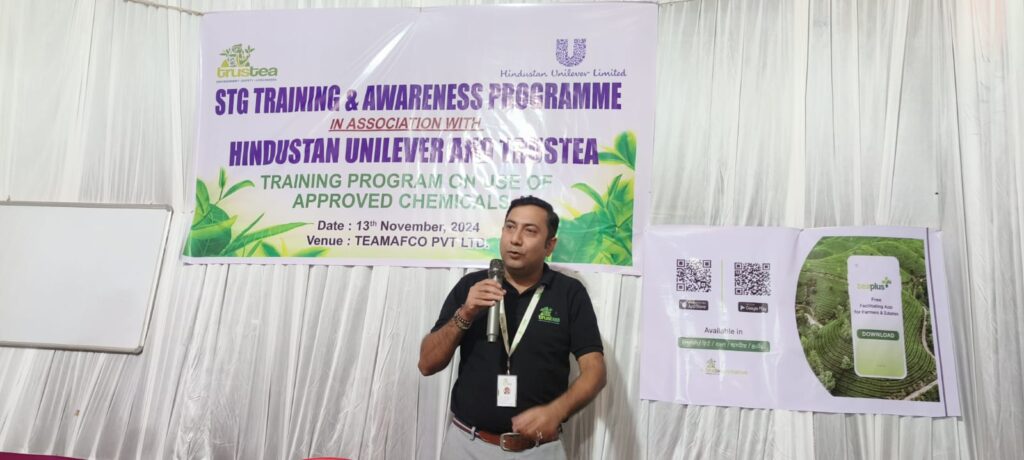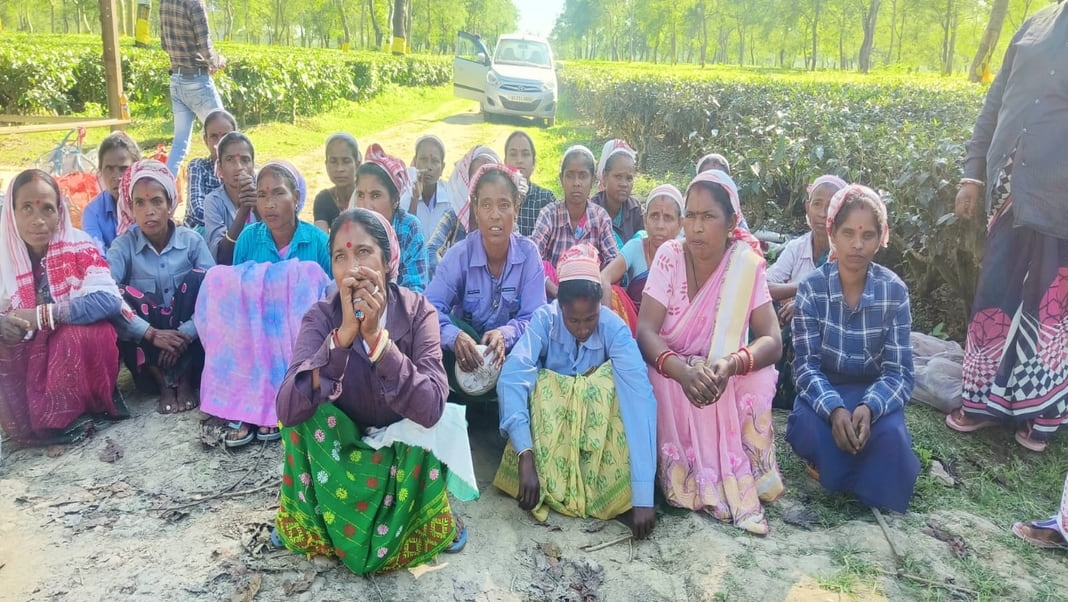Dibrugarh, Nov 14: The growing impact of climate change has become an existential threat to tea plantations in Assam and West Bengal. Prolonged dry spells, coupled with deforestation, have led to an alarming surge in pest and disease attacks, creating unprecedented challenges for small tea growers in the region. These changing weather patterns are disrupting traditional farming practices, pushing the tea industry into a crisis that requires urgent intervention.
To combat this, Hindustan Unilever Limited (HUL) has launched an extensive training and awareness initiative aimed at supporting small tea growers in navigating the complexities of pesticide usage and ensuring compliance with pesticide maximum residue limits (MRL). This is essential to safeguard both the environment and the livelihood of the growers in a climate-impacted world.

In June 2024, HUL partnered with the Trustea Sustainable Tea Foundation to roll out a program designed to reach 50,000 smallholder tea growers across Assam and West Bengal. The initiative focuses on educating farmers on the responsible use of legally approved chemicals, with a particular emphasis on mitigating the impact of climate change on pest management.
From November 13 to 14, a two-day training session was held at the TEAMAFCO and Ranglal tea factories in Dibrugarh. Small tea growers were educated on the proper application of legally approved pesticides, with a critical warning about the dangers of using banned chemicals. The training also included practical solutions for dealing with climate-induced pests and diseases.

Rajesh Bhuyan, Director of Trustee, stressed the urgency of these efforts in the face of climate challenges: “Our objective is clear—reduce the use of harmful chemicals in tea cultivation, following the guidelines of the PPC and FSSAI. Climate change is exacerbating pest problems, and tea growers must be equipped with the knowledge and tools to respond sustainably. Tea that contains banned chemicals is not only rejected by buyers but can lead to significant financial losses.”
Since the programme’s inception, it has reached over 80 tea factories and nearly 24,000 small tea growers by early November. With the accelerating threats posed by climate change, Bhuyan emphasized, “These programs are more vital than ever for the survival and sustainability of tea cultivation in the region.”

As part of the training, participants were introduced to the innovative TeaPlus+ App, a valuable tool designed to help growers navigate climate challenges. The app provides real-time weather advisories, legal pesticide usage guidelines, historical pest infestation data, and a community forum for sharing experiences and solutions.
One small tea grower attending the workshop shared, “Rising temperatures and prolonged dry spells have made our traditional methods increasingly vulnerable. This training has shown us new approaches that can help protect our crops and secure our livelihoods in a world affected by climate change.”
Also Read: NEHU crisis continues; Students, teachers reject Pro VC appointments, call it ‘illegitimate’
Also Watch
Find latest news from every corner of Northeast India at hubnetwork.in, your online source for breaking news, video coverage.
Also, Follow us on-
Twitter-twitter.com/nemediahub
Youtube channel- www.youtube.com/@NortheastMediaHub2020
Instagram- www.instagram.com/ne_media_hub
Download our app from playstore – Northeast Media Hub





